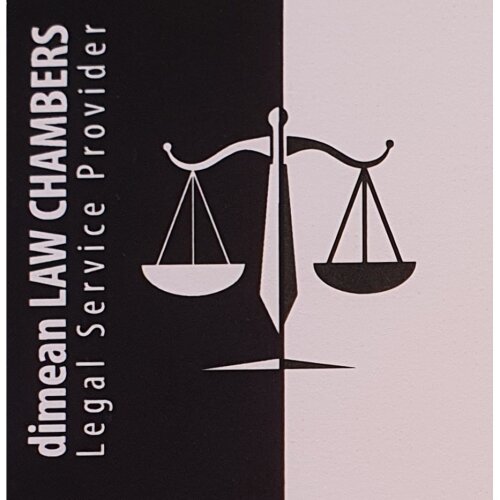Best Marriage Lawyers in Sri Lanka
Share your needs with us, get contacted by law firms.
Free. Takes 2 min.
Free Guide to Hiring a Family Lawyer
Or refine your search by selecting a city:
List of the best lawyers in Sri Lanka
About Marriage Law in Sri Lanka
Sri Lanka's marriage law is a fascinating amalgamation of different cultural and religious traditions. The legal framework consists of several personal laws reflecting the island's multicultural nature and colonial history. There are three main systems of marriage law in Sri Lanka: the General Law (based on Roman-Dutch law), the Kandyan Law (for the Kandyan Sinhalese), and the Muslim Law (specific to Sri Lankan Muslims). Each of these laws has unique provisions regarding marriage, reflecting the customs and traditions of their respective communities.
Why You May Need a Lawyer
There are several circumstances under which individuals may find it prudent to seek legal counsel regarding marriage in Sri Lanka:
- Marriage contracts and prenups: Creating clear agreements to outline the financial and legal implications of marriage.
- Interfaith or intercultural marriages: Navigating the complex issues that may arise when marrying outside one's own community, which may involve different legal requirements.
- Divorce and annulment: Understanding the legal processes involved in officially ending a marriage, including issues related to alimony, custody, and asset division.
- Registration and legal recognition: Ensuring that the marriage is legally recognized in Sri Lanka, which may involve fulfilling specific requirements depending on the law under which the marriage is contracted.
- Inheritance and property rights: Protecting individual rights within marriage, particularly concerning property ownership and inheritance.
Local Laws Overview
The legal landscape of marriage in Sri Lanka is influenced predominantly by the country's diversity and historical evolution:
- General Marriage Registration Ordinance: Applies to most Sri Lankans and requires marriages to be registered with the District Registrar for legal validity. This law aligns with the principles of Roman-Dutch law.
- Kandyan Marriage and Divorce Act: This law applies to the Kandyan Sinhalese community and encompasses unique traditions and customs specific to that group.
- Muslim Marriage and Divorce Act: Applicable to those following the Islamic faith, this act allows for religious ceremonies and specific legal stipulations in marriage and divorce.
- Thesavalamai Law: Governs matrimonial property rights among Tamils in Jaffna, emphasizing aspects of dowry and property ownership.
Frequently Asked Questions
What are the legal age requirements for marriage in Sri Lanka?
Under the General Marriage Registration Ordinance, both males and females must be at least 18 years of age to legally marry.
Is it necessary to register a marriage legally?
Yes, for a marriage to be legally valid in Sri Lanka, it must be registered with the appropriate governmental authority.
Can foreigners marry in Sri Lanka?
Yes, foreigners can marry in Sri Lanka. They must comply with Sri Lankan marriage laws, including providing necessary documentation like passports and affidavits of marital status.
How can I obtain a marriage certificate in Sri Lanka?
A marriage certificate can be obtained from the District Registrar’s office where the marriage is registered. Both parties will need to fill out an application form and pay a fee.
Are prenuptial agreements recognized in Sri Lanka?
While not common, prenuptial agreements can be recognized if they do not violate any laws and are deemed fair and just by a court.
What are the grounds for divorce under Sri Lankan law?
Grounds for divorce under the General Law include adultery, malicious desertion, and incurable impotence. The grounds may vary slightly under the Kandyan and Muslim laws.
How is property divided in a divorce?
Property division varies depending on the marriage law under which a marriage was contracted. Courts aim for equitable distribution but outcomes can vary based on individual circumstances.
Are same-sex marriages recognized in Sri Lanka?
No, same-sex marriages are currently not recognized under Sri Lankan law.
Can a marriage be annulled?
Annullment can occur under specific circumstances, such as fraud, mental incapacity, or lack of consent.
What rights do spouses have in a marriage?
Spouses generally have rights to shared property, maintenance, and inheritance, though specifics may vary by the community's personal law.
Additional Resources
For further assistance, individuals can reach out to the following entities:
- Registrar General's Department: Responsible for marriage registration and related services.
- Family Court: Handles legal matters related to marriage, divorce, and child custody.
- Legal Aid Commission of Sri Lanka: Offers free legal advice and representation for those unable to afford private counsel.
- Non-Governmental Organizations (NGOs): Various NGOs offer support and counseling for marriage-related issues.
Next Steps
If you require legal assistance in matters related to marriage in Sri Lanka, consider taking the following steps:
- Consult with a Lawyer: Engage a legal professional with expertise in family law to discuss your situation and explore options.
- Gather Required Documentation: Prepare all necessary documents, including identification, prior marriage certificates or decrees, and financial statements.
- Schedule an Appointment with Relevant Authorities: Depending on your specific need, arrange a meeting with the Registrar General or a Family Court officer.
- Educate Yourself: Understand your rights and obligations under Sri Lankan marriage law to make informed decisions.
By taking these steps, you can ensure that you navigate the complexities of marital law in Sri Lanka with clarity and confidence.
Lawzana helps you find the best lawyers and law firms in Sri Lanka through a curated and pre-screened list of qualified legal professionals. Our platform offers rankings and detailed profiles of attorneys and law firms, allowing you to compare based on practice areas, including Marriage, experience, and client feedback.
Each profile includes a description of the firm's areas of practice, client reviews, team members and partners, year of establishment, spoken languages, office locations, contact information, social media presence, and any published articles or resources. Most firms on our platform speak English and are experienced in both local and international legal matters.
Get a quote from top-rated law firms in Sri Lanka — quickly, securely, and without unnecessary hassle.
Disclaimer:
The information provided on this page is for general informational purposes only and does not constitute legal advice. While we strive to ensure the accuracy and relevance of the content, legal information may change over time, and interpretations of the law can vary. You should always consult with a qualified legal professional for advice specific to your situation.
We disclaim all liability for actions taken or not taken based on the content of this page. If you believe any information is incorrect or outdated, please contact us, and we will review and update it where appropriate.
Browse marriage law firms by city in Sri Lanka
Refine your search by selecting a city.

















